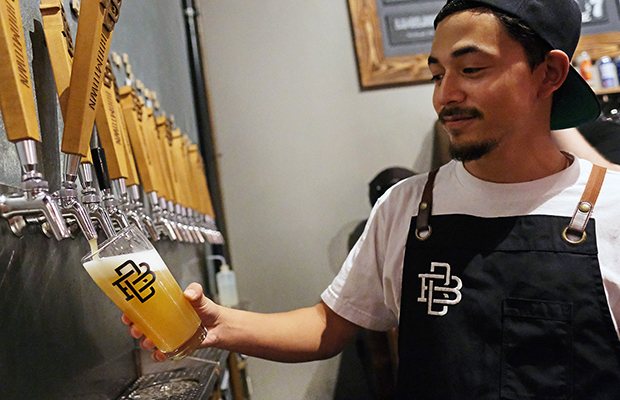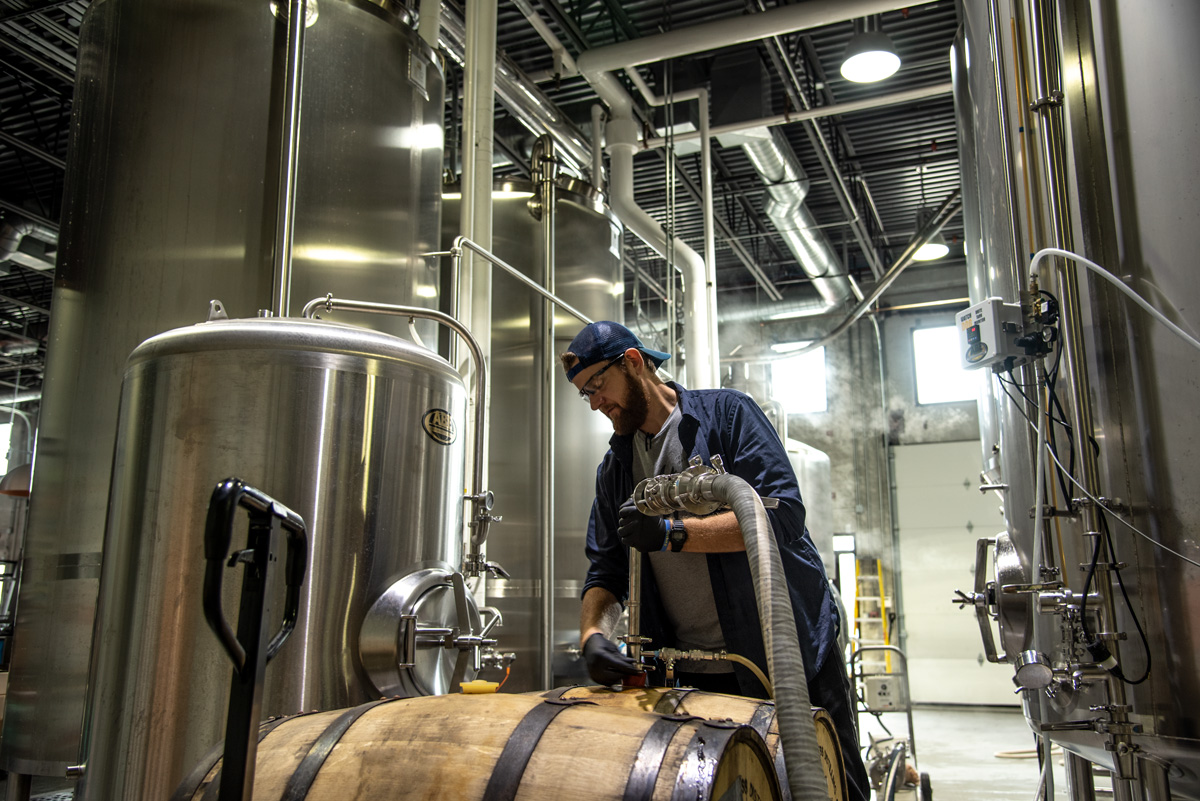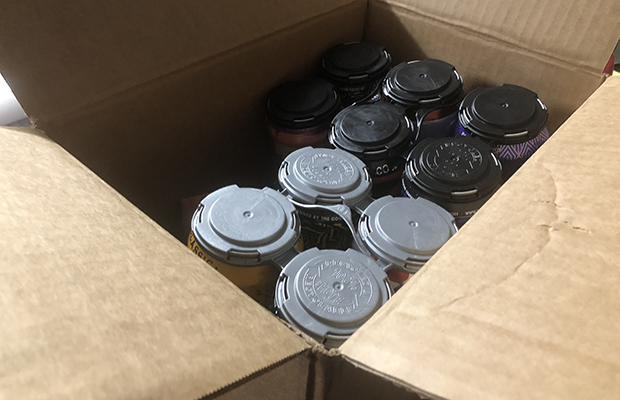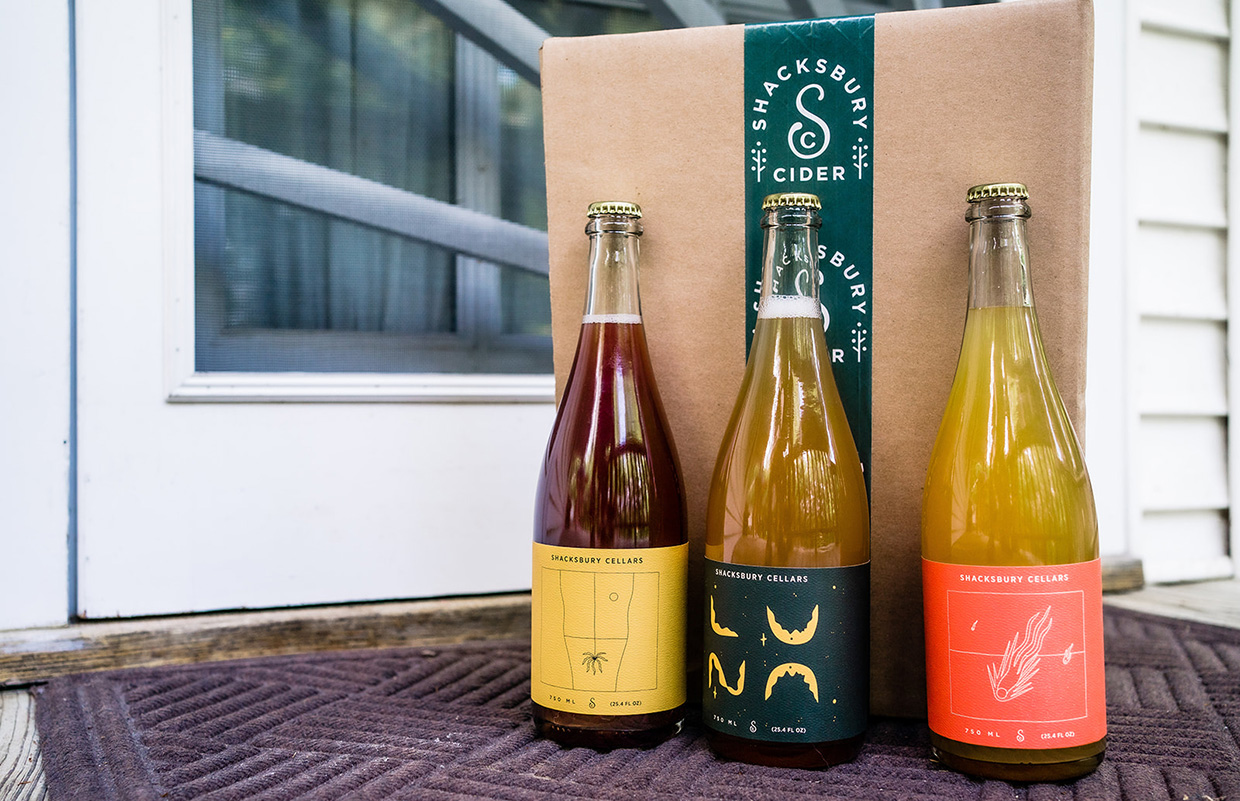
While looking at barrels sold at the buyer level allows a brewery to prioritize key accounts, staying in contact with them and finding the right brands for those sellers to keep a tap handle on and even boost extra sales via targeted brand placing can mean lots of communication.
Being a sales staff of one with more than 800 accounts throughout Southern California, it is difficult for Boomtown Brewery to keep a consistent line of communication with all of its buyers.
To combat this, Sales Manager Chase Hawkins says that Boomtown always lets buyers know that if any issues should arise with its beers or if they have any questions regarding the brand, they can always reach out to him directly via phone or email at any time.
Because of the large number of accounts, Hawkins said they identify key accounts based on the number of barrels of beer they buy, on average, per month.
“We make sure to keep a consistent line of communication and strong relationships with, at the least, our top 100 accounts,” he said.
This line of communication can help connect with buyers to locate handles that may be in jeopardy of being replaced.
Hawkins added that the brewery’s distributor, Wine Warehouse, is also an incredible asset.
“They have a large sales staff and each rep has a concentrated territory of roughly 100 accounts,” he said. “Maintaining close relationships with these reps is paramount to be sure that we receive information on any placements that may be in jeopardy, so we can work with them as quickly as possible to discover why that placement is having challenges, and work to keep the placement.
“If that is not possible, we will work to obtain a new placement at the account with a beer that will work better for them.”
He added that really, the only important thing is what the consumer at that establishment will enjoy.
“I’ve seen bars adamant on obtaining and rotating through the most esoteric beers possible when what their clients are really looking for is a dependable Lager/Pilsner and IPA on draft,” Hawkins said. “They are doing a disservice to their business by not providing this.
“On the other hand, I’ve seen accounts pouring large macro-brews that can be found at any grocery store or 7/11 when the clients in the area clearly want to be trying new, local beers.”
Showing a buyer that they aren’t providing the best possible beers for their clients can be tricky, but the goal, Hawkins said, is to guide them down a path that allows them to realize it for themselves.
“We are in the midst of a large shift in consumer philosophy that prioritizes small, local businesses producing crafted artisanal goods,” he said. “As a salesman, I’d be doing a disservice to the client and to our brewery to push a beer that won’t sell well there.”
He added that having a large array of beers offered year-round along with having interesting styles of beer for seasonal availability can make it easy to find a fit somewhere on a beer buyer’s tap and/or bottle and can list.






Be the first to comment